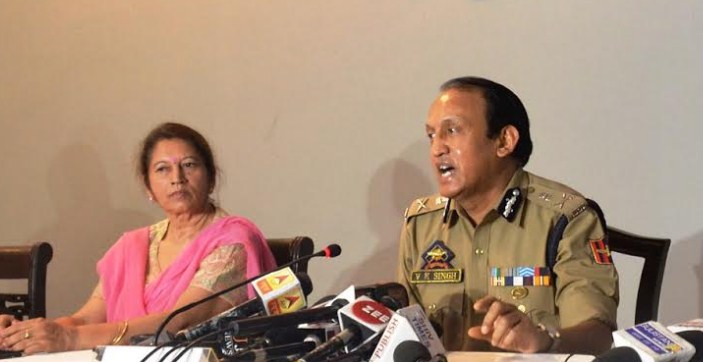To treat increasing problem of insomnia among jail inmates, the Department of Prisons, in collaboration with psychologists, held a special session in the District Jail premises here.
Speaking to reporters at media briefing, DG Prisons, J&K, V K Singh said that in a path-breaking initiative, the Prisons Department, J&K in collaboration with the University of Jammu and Government College for Women, Parade, conducted Cognitive Behavioral Therapy for Insomnia (CBT-D at District Jail, Ambphalla, Jammu to help inmates overcome sleep difficulties.
The target group of 61 inmates, including 6 female inmates, was selected on the basis of baseline data identifying those who figured high on the insomnia severity index, he said adding that the intervention comprised evaluation of sleep problems, sleep log monitoring, exercises for improved sleep hygiene, relaxation techniques, addressing dysfunctional belief related to sleep assessing treatment compliance and review of participants progress.
The sessions were held within the Jail premises with the help of Dr Arti Bakshi, Head, Department of Psychology. University of Jammu and Dr. Piyali Arora, Assistant Professor, Clinical Psychologist, Government College for Women, Parade, Jammu.
Mirza Saleem Ahmed Beig, Superintendent, District Jail Jammu also flanked the DG Prisons.
Mr Singh emphasised that at the core of Prison administration is Correctional service which seeks to reform the inmates and enables them to re-integrate as healthy adults within the community on release.
Accordingly, he said that a need was felt to address sleep problems for better reformation of inmates which led to planning and implementation of this intervention.
As per experts, sleep problems affect the heath of inmates adversely and long-term sleep problems among inmates may lead to memory issues, poor concentration, weak immune system, susceptibility to diabetes, depression, anxiety, suicidal ideation, etc., which in turn create an extra burden on the system and pose serious challenges in corrections.
Mr Beig stated that in the present COVID-19 scenario, the advantages of a healthy immune system have been repeatedly highlighted.
The intervention took place while observing guidelines for social distancing, use of face masks and regular hand washing, he added.
The faculty of JU and GCW Parade stated that earlier a study had been conducted by the University of Manchester, UK in 2016 which had concluded that Insomnia Disorder and poor sleep quality were common in adult English prisoners and the findings emphasised the need for dedicated treatment pathways to improve screening, assessment and treatment of insomnia in prisons.
Previous studies had identified risk factors for insomnia to include increased age, psychiatric disorders (eg depression, anxiety, personality disorders), physical ill-health, stressful events, prescription medication and substance abuse, Prisoners have a higher prevalence of most of these precipitating factors compared to the general population.
In addition, the prison regime and environment may further interfere with the sleep-wake cycle due to the interruption of usual daily routines, and lack of personal autonomy etc.
They said that lack of control over physical environment is also likely to cause further disturbance. Analysis of sleep related data collected from 569 inmates suggested that 61 inmates had sleep difficulties as they slept for 3 hours (or less) on an average.
The data also reveals that only 1196 had sleep difficulty be fore being incarcerated which increased to 749% on admission in prison which shows scope for CBT-I at start, CBT-I was conducted with these 61 inmates and feedback/data analysis reveals that there has been a significant improvement in quality of sleep/sleeping duration of these inmates (66% had benefitted) over a period of three months.
The DG Prisons informed that after the successful conduct of this intervention at District Jail Jammu, the Department is planning to conduct the program in other jails of the Union Territory.
Leave a comment
Your email address will not be published. Required fields are marked *


